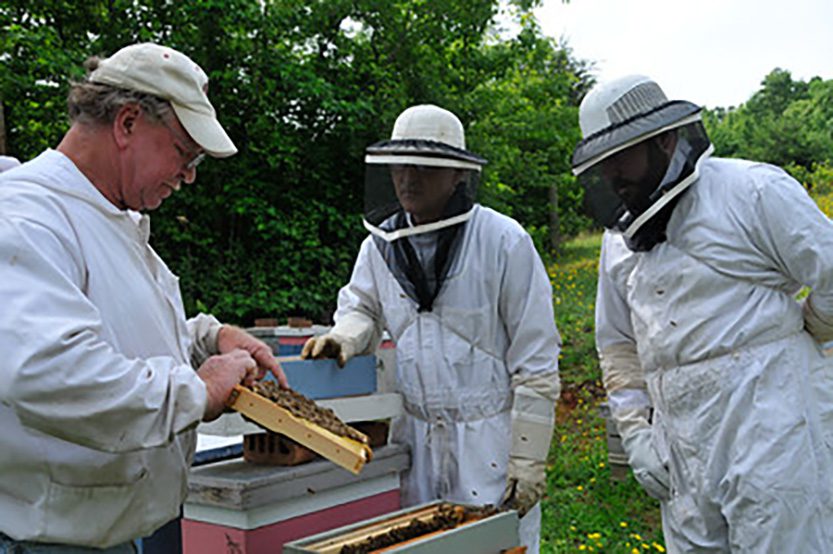
Beekeeping is critical to United States agriculture and has grown in popularity as a hobby enjoyed by thousands of South Carolina residents.
To help new and aspiring beekeepers learn how to be successful, the Clemson Cooperative Extension Service has developed a training program.
Ben Powell, coordinator of Clemson’s Apiculture and Pollinator Program, is offering a Basics of Beekeeping Hybrid Course. Live lectures will be offered online from 6 p.m. to 8 p.m., Sept. 12-28. The course also includes two field days scheduled for late September. Everyone taking the course will receive the presentation notes, as well as the training text, Storey’s Guide to Keeping Bees 2nd Edition, and training materials.
Cost of the program is $60. To register or for more information, go to https://bit.ly/3Z2Gt59.
This hybrid course combines six online lectures taught by Powell and will include opportunities for interaction and questions.
Online lecture topics and dates are:
- Honeybee Biology – Sept. 12
- Beekeeping Equipment – Sept. 14
- Hive Management – Sept. 19
- Pests and Diseases – Sept. 21
- Honey and Other Hive Products – Sept. 26
- Review: The Beekeeper’s Year – Sept. 28
Field days will be held on Sept. 23 in Clemson, South Carolina, and Sept. 30 in Florence, South Carolina. Activities will take place in the Clemson bee yards to give participants opportunities to learn basic beekeeping skills and get hands-on training with live bees. Lunch will be included.
Field day activities will include assembling hives, installing bees, assessing colony health and “reading frames.” Participants also will learn about controlling pests, collecting disease samples, and splitting and moving hives.
Participants are encouraged to bring their own beekeeping gear to the field days, but jackets, gloves, veils, and smokers will be provided if needed. Anyone who suffers from insect or food allergies should contact Ben Powell at bpowel2@clemson.edu, or (843) 662-3526 before registering.
Beekeeping is an important endeavor that helps support the economy, as well as local ecosystems. In 2022, honeybees contributed an estimated $15 billion to the nation’s economy. In addition to products and byproducts such as honey, wax, propolis and jelly harvested directly from honeybee colonies, honeybees also are prolific pollinators.
Statistics provided by the United States Department of Agriculture for South Carolina shows the maximum total number of honeybee colonies in the state for April-June 2022 was 23,000. This was a 21.1% increase from 2021 and the 12th biggest increase nationally.
-END-
Get in touch and we will connect you with the author or another expert.
Or email us at news@clemson.edu
